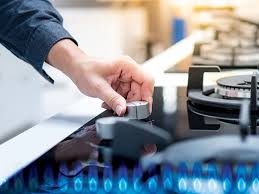Maintaining gas appliances is essential for ensuring safety, efficiency, and longevity in your home or business. Regular gas appliance maintenance not only helps in preventing costly repairs but also keeps your equipment running smoothly, reducing energy consumption and minimizing the risk of hazardous leaks. Whether it’s your gas stove, water heater, or furnace, a proactive approach to upkeep ensures optimal performance, enhances safety, and can even extend the lifespan of your appliances. In this blog, we’ll explore the key aspects of gas appliance maintenance . Here are 10 essential tips for maintaining gas appliances in your home:
1. Schedule Regular Servicing for gas appliance maintenance
- It’s vital to have your gas appliances serviced annually by a qualified Gas Safe registered engineer. Regular servicing helps identify potential issues before they become serious problems, ensuring your appliances run safely and efficiently.
2. Check for Gas Safety Certification
- Ensure that all gas appliances are installed by a Gas Safe registered engineer. After installation, you should receive a Gas Safety Certificate, which confirms that the appliance is safe to use. Keep this documentation for your records.
3. Inspect for Leaks
- Familiarize yourself with the smell of gas—it’s often described as a sulfur or rotten egg odor. If you detect this smell, turn off the gas supply immediately, open windows for ventilation, and leave the premises. Call the National Gas Emergency Service at 0800 111 999 for assistance. You can also check our blog post https://utility7.com/8-essential-steps-to-safely-handle-gas-leaks-and-prevent-hazards/
4. Keep Vents Clear for Gas Appliance Maintenance
- Ensure that air vents around your gas appliances are unobstructed. Proper ventilation is essential for safe operation and prevents the buildup of harmful gases, such as carbon monoxide.
5. Check Flame Appearance
- The flame on your gas appliances should burn with a steady blue color. A yellow or flickering flame may indicate incomplete combustion and requires immediate attention from a professional.
6. Install Carbon Monoxide Detectors
- Install carbon monoxide detectors in key areas of your home, especially near gas appliances. Test the detectors regularly and replace batteries as needed. This can provide an early warning if there are issues with your gas appliances.
7. Keep Appliances Clean
- Regularly clean your gas appliances to prevent buildup that can affect performance. Follow the manufacturer’s instructions for cleaning and maintenance. Avoid using abrasive materials that could damage surfaces.
8. Be Mindful of Changes in Performance
- If you notice any changes in your appliances’ performance—such as unusual noises, longer cooking times, or pilot lights that frequently go out—contact a Gas Safe registered engineer to assess the situation.
9. Educate Your Family about Gas Appliance Maintenance
- Ensure all household members know how to safely use gas appliances. Teach them to recognize the signs of a gas leak and the importance of reporting any issues immediately.
10. Keep Emergency Numbers Handy
- Have the contact details of your gas supplier and the National Gas Emergency Service easily accessible. In case of an emergency, quick access to these numbers can make all the difference.
Maintaining gas appliances is crucial for both safety and efficiency in your home. Regular upkeep not only helps prevent potential hazards like gas leaks and carbon monoxide poisoning but also ensures that your appliances run smoothly and consume less energy.
Staying proactive with maintenance is crucial to ensuring a safe environment for you and your family. If you suspect something is wrong or are unsure how to properly maintain an appliance, don’t hesitate to consult a qualified technician. Your safety is paramount, and proper maintenance can not only extend the lifespan of your appliances but also maximize their efficiency. For more information on maintaining gas appliances safely, Do Follow https://www.hse.gov.uk/gas/landlords/gasappliances.htm

